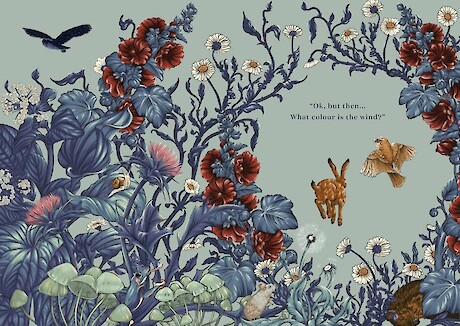There is a variety of workshops available on Sunday 4 December which we know will prove popular with conference attendees and locals alike. Please note, these workshops were originally scheduled for 20 March 2022 but now the conference has been rescheduled due to changes in Alert levels and the number of delegates exceeding 100 people. For more information visit this page about the 2022 conference postponement. We wish to thank the people running these workshops and the venues for their flexibility and support.
Workshop 1: Starting your own community nursery
When: 10:00-12:00
Where: Jean Malpas Community Nursery, Kelvin Heights
Workshop leaders: Ben Teele supported by Arne Cleland and Chris Rance
Numbers: This workshop is limited to 20 people (this workshop is now full)
Cost: $10
About: We will be covering basic knowledge required to operate a small low tech community nursery. This will include knowledge of the plants you want to grow and the basic horticultural techniques/practises to grow them. Also the essential infrastructural facilities and materials required to establish a successful nursery. There will be plenty of Q&A time.
Workshop 2: Introduction to propagation of native plants
When: 13:00-16:00
Where: Jean Malpas Community Nursery, Kelvin Heights
Workshop leaders: Arne Cleland, supported by Ben Teele, Chris Rance and Helen McPhail.
Numbers: This workshop is limited to 20 people (this workshop is now full)
Cost: $10
About: We will cover the basics of growing from seed and cuttings within a low tech nursery. Also included will be what is eco-sourcing and it’s importance. We will have some practical demonstrations and hands-on experience time. There will be plenty of Q&A time.
Workshop 3: Plant ID course – New Zealand grasses (Poaceae)
When: 09:00-12:00
Where: Coronet Peak
Workshop leader: Kerry Ford
Numbers: limited to 12 people (this workshop is now full)
Cost: $25
About: An introduction to the main grass genera you are likely to run into in the mountains and how to tell them apart. Time will be spent outside collecting grasses before we move inside to focus on basic grass morphology and get you using the NZ Grass Key (Lucid multi-access key).
Workshop 4: Plant ID course – New Zealand sedges (Cyperaceae)
When: 13:00-16:00
Where: Coronet Peak
Workshop leader: Kerry Ford
Numbers: This workshop is limited to 12 people (this workshop is now full)
Cost: $25
About: Introduction to the NZ Carex Key (Lucid multi-access key). Time will be spent outside collecting sedges before we move inside to focus on basic sedge morphology and how to recognise genera.
 Illustration by Laura ShallcrassWorkshop 5: Botanical illustration
Illustration by Laura ShallcrassWorkshop 5: Botanical illustration
When: 09:00-16:00
Where: Sherwood
Workshop leader: Laura Shallcrass
Numbers: This workshop is limited to 12 people
Cost: $100
About: In this workshop we’ll be exploring the visual nature of plants. We’ll complete a series of drawing exercises aimed at creative representation of botanical features, including structure and proportion, linework, shading and colour and artwork composition. This workshop is suited for all levels of artistic and botanical experience.
Workshop 6: Botanising with iNaturalist
When: 10:00-12:00
Where: Kiwi Birdlife Park
Workshop leaders: Colin Meurk
Numbers: This workshop is limited to 25 people
Cost: $10
About: This consists of two contiguous 1-hour workshops back-to-back in one session (10:00-12:00). The first will be a beginners or refresher course – remembering to record flower/fruit state. Then you will take your iNaturalist experience to the next level learning how to do things like tagging and editing observations; curating the iNaturalist species tree and nomenclature; streaming iNaturalist observations to external websites; and connecting R to iNaturalist for data analysis.
Workshop 7: Lichens workshop
When: 13:00-16:00
Where: Kiwi Birdlife Park
Workshop leaders: Melissa Hutchison, Marley Ford
Numbers: This workshop is limited to 15 people (this workshop is now full)
Cost: $20
About: Come and learn about the fascinating world of lichens - their habitats, ecological roles, and how to identify them. The workshop will involve a brief local field excursion (to get a feel for the substrates and habitats occupied by different lichen species), as well as an indoor session on lichen identification using keys and lab techniques.
Workshop 8: Using direct seeding for large-scale native afforestation
When: 13:00-16:00
Where: Crown Range
Workshop leaders: Pieter Brits and Tim Whittaker
Numbers: This workshop is limited to 20 people
Cost: $10
About:Join SeedNZnatives for a demonstration of their innovative direct seeding technology. Hosted by Nadia Lim and Carlos Bagrie on their high country station, 30 minutes from Queenstown, Nadia and Carlos are transforming their property with a variety of regenerative agriculture practices including a native planting programme. This workshop is being coordinated externally by SeedNZNatives - contact Pieter Brits for more details ([Enable JavaScript to view protected content]).
